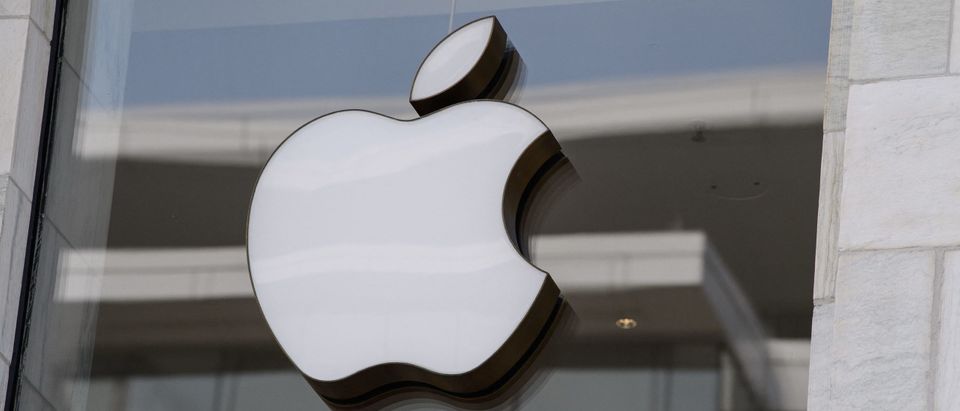At Apple’s World Developer Conference on June 6, the tech behemoth reportedly plans to expand its new iCloud Private Relay feature to all of Apple’s products. And with that, Tim Cook’s seeming quest for complete monopolization of the digital marketplace will gain longer legs than it’s ever had.
Apple released Private Relay last year to shield users’ IP addresses and other pieces of their personal information from third-party publishers as they surf the web on Safari. In other words, ad-supported services such as free streaming services are no longer able to use browsers’ data to generate targeted advertising content — unless, of course, that advertiser’s name is Apple.
Apple claims it released Private Relay out of respect for its users’ privacy, but if you’re having a hard time believing that Tim Cook — whose company is aggressively ramping up its own digital advertising business — cares about your privacy, you’re not alone.
Even at this early stage, Private Relay is already proving not to be the privacy firewall it was advertised. VPN service Mullvad found that the feature is leaking users’ personal information by not respecting the privacy rules of the operating system, and the only way to stop the leak is by disabling it altogether.
If Tim Cook cared so much about your privacy, leaks like this one wouldn’t happen, so Apple’s goal for releasing Private Relay must be about something else — and it doesn’t take a rocket scientist to figure out what that something is.
Brian Maloney of the Media Equality Project recently pointed out the obvious: Private Relay is allowing Apple to amplify its marketplace stranglehold. “What Apple does care about … is increasing and consolidating its monopoly power,” Maloney wrote. “Its estimated $5 billion digital ad business has grown 1,300 percent since 2017 and the company appears hellbent on multiplying its market share several times over in coming years.”
If you believe that Apple’s digital ad business growing a whopping 24% following Private Relay’s 2021 release is a mere coincidence, you’re kidding yourself. What else could the company possibly have expected to happen when it prevented all other advertisers besides Apple from accessing IP addresses and other bits of users’ personal data?
If Apple is left unchecked to continue growing its ad monopoly, the American people will be in for trouble. The number of predatory activities that the company will be able to engage in will become endless.
Facebook and Google’s powerful digital ad monopolies, which comprise over 80% of each of their parent companies’ respective annual revenue streams, have given them the unprecedented financial ability to conduct a consortium of anti-competitive undertakings, from buying out competitors to prioritizing their channels over their rivals’. Their ad businesses have given them the money, power and market share needed to censor content they disagree with, stifle free speech, squelch business rivals and increase costs.
Apple is already engaging in many of the same activities, from temporarily banning conservative social media app Parler to restricting competitors’ ability to compete with services like Apple Pay. But if the company gets away with expanding Private Relay’s reach from just Safari to all of Apple’s other products, as is anticipated, the size of its ad business and overall abuses will quickly rise to the same level of, if not transcend, Facebook and Google’s.
When streamers and other apps can no longer rely on ads for revenue, they will have to move to a subscription model to continue making revenue. And when that happens, Apple — whose iPhones are used by more than half of the U.S. population — will become the gatekeeper for these services. Imagine the podcast you enjoy today for free moving behind Apple’s pay wall. This will give Apple the power to become as big of an arbiter of what one can say or do on the Internet as all the other Big Tech giants. You won’t be able to do or say anything on your phone without Tim Cook having a say on what is or isn’t permissible, and that’s an outcome that everyone should want to avoid.
Regulators and legislators should not allow Apple to use the cloak of privacy to corner the digital advertising market. Washington sat back while Google and Facebook made acquisition after acquisition that gave them market dominance. Policy makers cannot sit back and allow Apple to do exactly the same under the false pretense of “protecting the consumer.”
Apple has gotten far too many wins at consumers’ expense, but expanding Private Relay across its platforms would mark the biggest one yet. Let’s not allow this initiative’s tentacles to continue growing. Let’s cut them off now while we still can.
Jon Schweppe is the policy director at American Principles Project. Follow him on Twitter @JonSchweppe.












